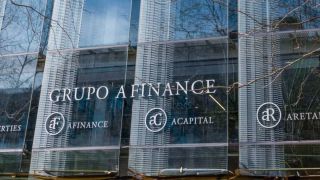
The bank dreams its resurrection
The puncture of the real estate and credit bubble of the last decade was the prelude to the Great Recession, the crisis that began in 2007, whose effects and imbalances still persist to a great extent today.
The financial sector faces 2017 in the hope that the macroeconomic environment and its own situation after years of hardship will allow it to begin to climb the flight
The puncture of the real estate and credit bubble of the last decade was the prelude to the Great Recession, the crisis that began in 2007, whose effects and imbalances still persist to a great extent today. The main disadvantaged were the citizens - the unemployment grew by 3 million in Spain - but the destruction of wealth reached from full to many companies and, of course, to the banking.
In the last ten years, the financial sector has been in the middle of a sea of scandals and losses in which there has been everything: bankruptcies and bailouts of entities, mergers, closures, thousands of layoffs and a great destruction of value. The banking sector has concentrated, it has destined hundreds of billions of euros to clean up its balance sheets, it has increased capital by tens of billions of millions and now, finally, it aspires to start turning the page. It is only an aspiration, a desire, but with some foundation.
Donald Trump's victory in the United States elections last November 8 - along with his promises of fiscal stimulus - and the rate hike decided by the Federal Reserve ten days ago marks the beginning of the end of the era of infotypes of Interest that are so damaging to banks. And that helps them.
Not everything is done. In Spain, the sector still has to privatize Bankia and BMN and solve the future of Popular - the sixth bank of the country, either to remain alone or integrated into a competitor - and groups such as Kutxabank, Liberbank, Unicaja and Ibercaja . There are still some problems, such as unproductive assets from brickwork or overcapacity, but the feeling is that most of the work is done.
Improving profitability is possible in the short term because there will not be so many provisions for the brick.
While Italy is ready to rescue the Monte de Paschi and face the lack of capital of a large number of its banks for the scarce provisions, the Spanish financial sector may think of focusing on the process of digitization and profitability.
Neither the evolution of credit nor interest or commission margins will improve dramatically in 2017, but it is expected that there will be fewer negative and more positive contributions from asset management. Fewer provisions will be needed - the level of endowments is already high and delinquency is falling - and there will be greater extraordinary profits from the sale of real estate and land.
- Featured news
-
 En aFinance participamos en el Evento ‘Comunicación Eficaz’ en Roca Barcelona GalleryMay 25th 2024
En aFinance participamos en el Evento ‘Comunicación Eficaz’ en Roca Barcelona GalleryMay 25th 2024 -
 Incorporamos a Carlos Martín como nuevo Director de nuestra oficina de Barcelona en aFinanceSeptember 19th 2024
Incorporamos a Carlos Martín como nuevo Director de nuestra oficina de Barcelona en aFinanceSeptember 19th 2024 -
 Las finanzas bajo el foco con nuestro Director NacionalSeptember 12th 2024
Las finanzas bajo el foco con nuestro Director NacionalSeptember 12th 2024 -
 En aFinance, nos complace anunciar la incorporación de Patricia Marqués como Coach EjecutivaMay 23rd 2024
En aFinance, nos complace anunciar la incorporación de Patricia Marqués como Coach EjecutivaMay 23rd 2024 -
 En aFinance hemos superado los 1.150 millones de euros en valor de transacciones durante 2023May 3rd 2024
En aFinance hemos superado los 1.150 millones de euros en valor de transacciones durante 2023May 3rd 2024






